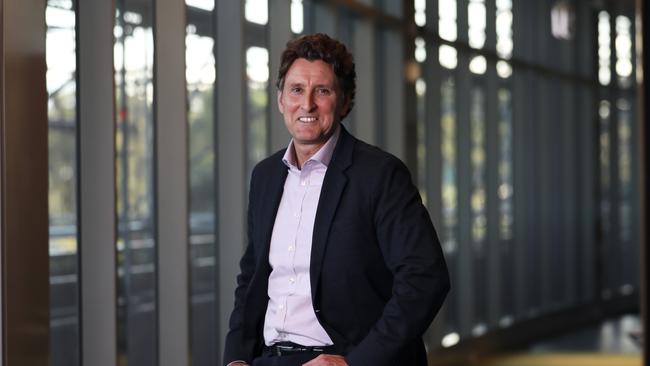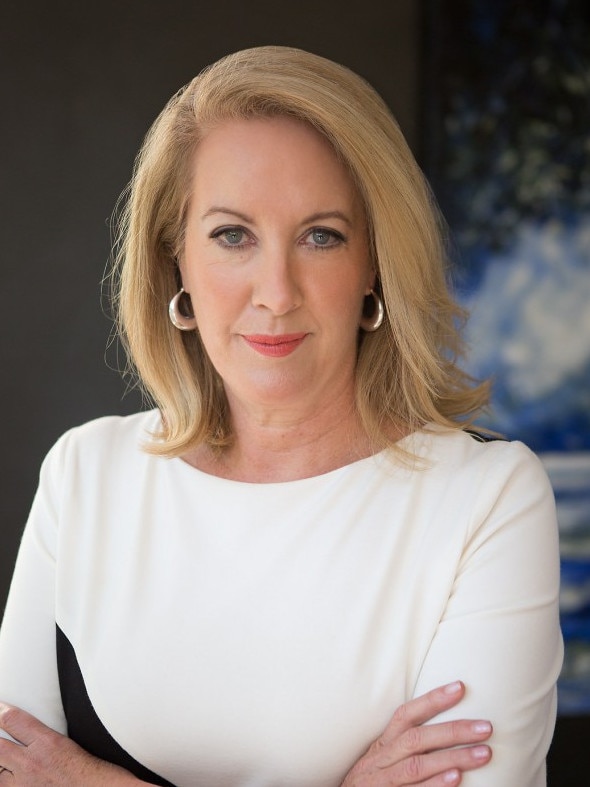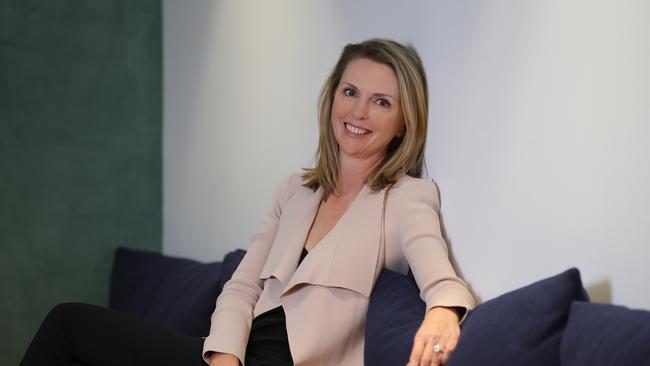Microsoft boss calls out ‘everyday sexism’
The Australian head of Microsoft says we should use the Covid disruption to build more inclusive workplaces.

About 5000 employees of Microsoft Australia and its partners will take part in a half day of action next week to call out “everyday sexism” that can undermine a stack of gender-neutral recruitment, promotion and remuneration programs.
As former sex discrimination commissioner Elizabeth Broderick says, it can be as simple as the “bro” culture of male-dominated meetings where women find it hard to voice opinions.
Broderick is a co-convener of the Champions of Change Microsoft Partners Group that has organised Wednesday’s STAND UP event, which will be delivered virtually and include videos, talks and smaller team discussion sessions.
“In my world I don’t see women running for the door often because of a single event unless it’s really serious. I see them running for the door because it is the accumulation of micro moments that lead to a feeling of not belonging,” she says.
“We have all been to those meetings where you are so in the minority and it has such a heavy bro feel, particularly in the tech world, so that even someone with positional power like me might feel it’s the wrong thing, how will it be perceived.”

Broderick says we need to look at how meetings are facilitated and whether women can have an equal share of voice. She say the value of the STAND UP event is that Microsoft will join with its 11 partners to create a sense of scale on the issue. Every company is taking action on sexism and exclusion, but we “wanted to use the power of the collective to really come and say, we stand for something”. Her hope is to expand the event further in the tech sector: “When you take a sector and engage every member, that is when you see system change.”
Broderick says workplace dynamics have shifted fundamentally in the past couple of years but “there are still some who don’t understand that” and next week’s event is a chance to invite people to share their experiences. She says “intentional action” is needed to ensure remote work and hybrid models do not affect women more than men, who are more likely to return to the office and be physically closer to their bosses.
Microsoft managing director Australia and New Zealand Steven Worrall says workplace harassment is a “scourge on our society” and leaders have to realise that just because they are not hearing about it, it doesn’t mean it isn’t happening.
“In the tech industry we are heavily weighted towards male – about 30 per cent female (although Microsoft is further advanced),” he says. “But in any community that is not representative of the broader group there will be unconscious bias, mini aggressions or cultural biases that are a reflection of the fact that you don’t represent the society you are trying to serve.
“You can do all of the things you might typically expect around pay equity and creating more effective pipelines for women who come into the industry, you have a STEM focus, a strategy to connect to women and girls at schools. But if you have not established psychological safety within the organisation … it is like a leaky bucket, putting more and more people in, but people are leaving.”
He says the shortage of skilled tech workers is an opportunity to bring more women into the industry.
“The tech industry grew up with the idea it is male-dominated with engineers and coders, but more and more it is about non-technical areas – what are the ethical issues, how do we help industry use tech?” he says.
The generational shift in working arrangements is an opportunity for broader change, he says: “It’s a profound moment of people thinking about their relationship to work.
“We are seeing a massive step change in adoption of technology. Wouldn’t it be great if we said collectively, how can we come back and redesign or create environments that truly address these issues? They are a cancer on our society – sexual harassment, discrimination, racism have no place in any workplace, so why don’t we rethink this moment to decide how we want the workplace to be in future, for all of us? ”

Microsoft’s chief partner officer Rachel Bondi says: “I worked in the US for 18 years and five years ago I returned to Australia and I found myself in the first months really questioning, is Australia the ‘bro club’?
“I really felt it and I was struck by the number of males and also questioned whether I belonged.”
But it took time for her to talk about the issues: “It took a lot of courage and I felt uncomfortable and yet I am a senior leader in a position of power. So STAND UP gives every single Rachel that chance.”
As co-convener of the partners group, Bondi says the power of next week’s event will be the scale and ripple effect it creates.



